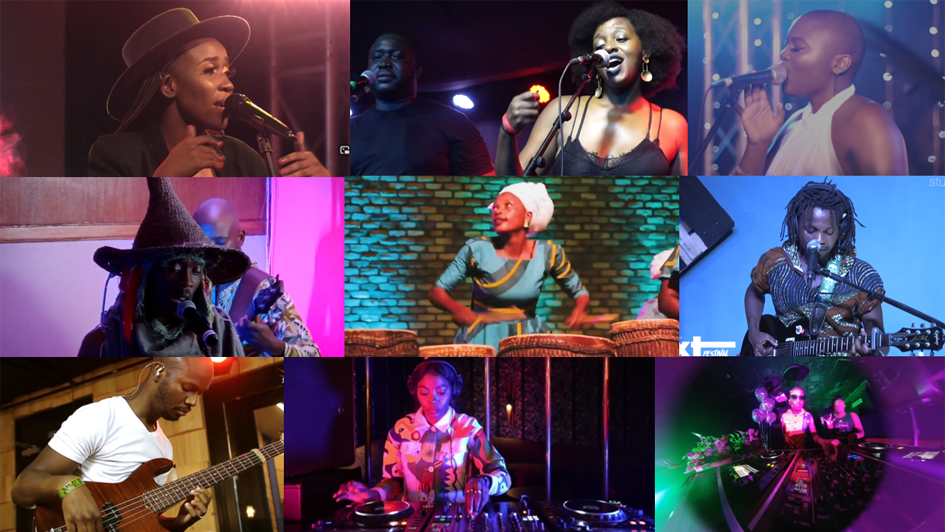COVID-19 Response
Fostering innovation in the crisis
COVID-19 Response
Fostering innovation in the crisis
COVID-19 Response
Fostering innovation in the crisis
The coronavirus pandemic has presented tremendous challenges for people around the world – from social entrepreneurs in Kenya to creative artists in Chile and teachers in Germany. Together with our international partners, we remain resolute in pursuing our mission of promoting sustainable social development – inspite of the crisis. We have adapted and expanded many aspects of our project portfolio in response to the current situation in order to support concrete and innovative solution courses leading out of the crisis. The pandemic has demonstrated the need for long-term change in the most diverse areas. It has motivated us to break new ground with productive ideas, from creative teaching formats to sustainable business strategies and unique, unprecedented collaborative endeavors that integrate actors from politics, business and civil society. Driving this forward it a key priority for us.
Visions for the future of digital and hybrid learning
COVID-19 has turned teaching and learning on its head. In March 2021, UNICEF reported that 168 million children and young people have been unable to go to school for over a year. For the majority, this has meant learning from home and communicating digitally. Freely accessible educational resources quickly became a crucial factor in ensuring that as many children as possible could access high-quality education. We offer Open Educational Resources for digital STEM lessons on our education portals. By working with local partners, we also continuously develop new concepts, online formats, webinars and conferences to pave the way for a hybrid learning culture.
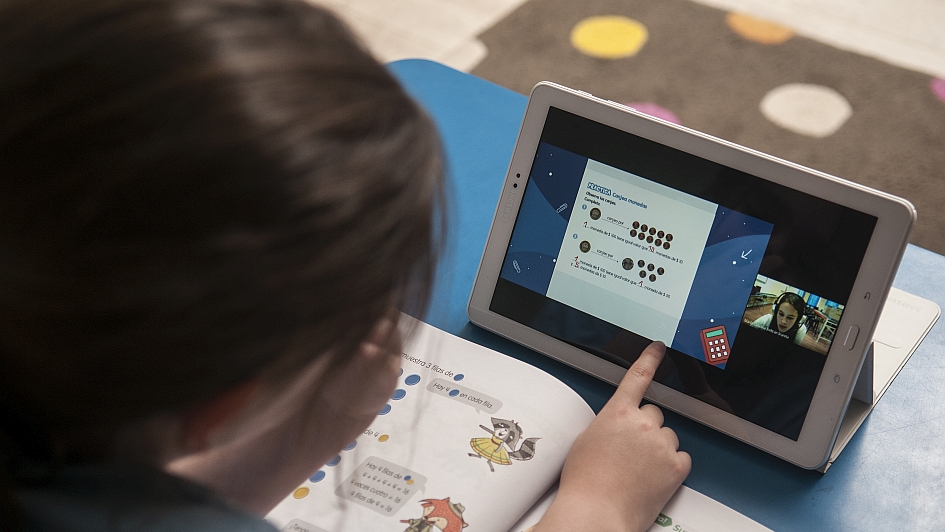
Open Educational Resources for STEM teaching
We offer around 3,300 Open Educational Resources (OER) on our Media Portal for STEM lessons in English and German. Thanks to extensive educational cooperations with government ministries and state and civil institutions, we are also able to provide our free, digital materials on various educational servers.
Our CREA – El Portal de Medios para la enseñanza STEM portal offers 1,300 Spanish-language teaching materials for use in science, technology, engineering and mathematics lessons. We set up this portal at the start of the pandemic in conjunction with our partner organizations in Latin America in response to the urgent need for high-quality digital educational materials.
Robust support in the crisis: Latin America-wide STEM education initiative
We have also helped to create further teaching and learning materials as part of the STEM Education for Innovation initiative across Latin America. Together with our partner institutions from Latin America and with the support of Siemens Caring Hands e. V., we develop analog, digital and hybrid teaching content for science and technology education. This primarily involves blended-learning concepts for ongoing teacher training, online technology education courses, interactive climate change maps, and videos and podcasts on the topics of health and hygiene.
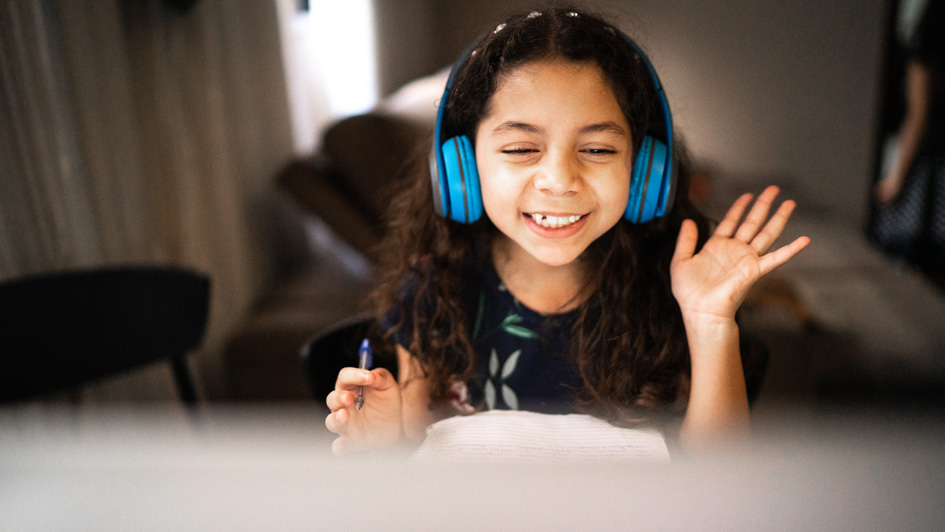
»With schools closed, the world is a classroom«
Five teachers involved in the STEM Education for Innovation initiative explain how the pandemic has transformed their day-to-day work – and show how digital education can succeed in future.
New connections created between artists and audiences
We see arts and culture as a crucial key to mutual understanding in a society. Particularly in times of tremendous change, artistic work sharpens our perception of social trends and gives us a clearer sense of how we relate to one another. But how can artists open up spaces for discourse when cultural activities are heavily restricted due to the pandemic? Numerous creative initiatives have been set up with the aim of facilitating reflection and creating a sense of community, even when physical contact is not possible.
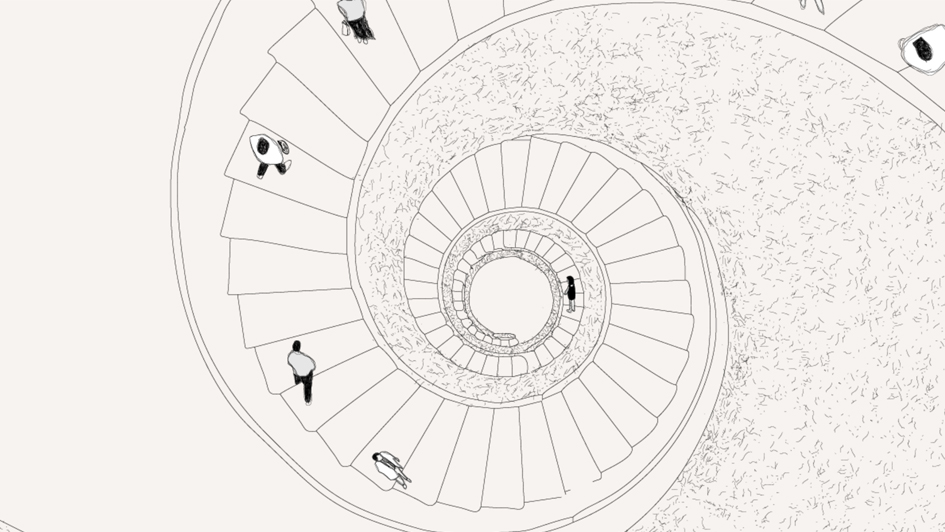
SITIO INESPECIFICO: Encounters in the digital realm
How can art find space for itself in imaginary places in a time of lockdowns? The online platform SITIO INESPECIFICO (Unspecific Site) allows Latin American artists to present digital works of art that enable cultural encounters beyond the confines of physical locations. Using illustrations, audio and poetry, these works reflect our experience of the pandemic and our transformed coexistence. It turns digital languages into an entirely unique form of artistic expression.
Music In Africa: Skills for a music industry in flux
Live performances are the primary source of income for many African musicians but have often been canceled entirely due to restrictions to combat the pandemic. The Music In Africa Live project helps musicians to improve their digital skills in order to adapt to changes in the music industry. Professional African production companies and artists receive support in developing and spreading the concept of online concerts. In addition, the project funds the production of training and development services that teach skills applicable in music projects in the digital realm.
International Relief Fund for Organizations in Culture and Education
Siemens Stiftung actively participated in the 2020 International Relief Fund for Organizations in Culture and Education coordinated by the German Federal Foreign Office and the Goethe-Institut. Using this framework, and taking the special circumstances of the pandemic into account, we hosted an instrument construction and repair workshop in Gauteng, South Africa in 2020.
Resilient social enterprises and communities
The coronavirus pandemic is the most significant global health crisis in decades, hitting developing regions particularly hard – sometimes with serious socio-economic repercussions. Social enterprises can make a vital contribution during this time of crisis by providing essential services and products for disadvantaged people and creating potential sources of income. The pandemic, however, also presents a major challenge for these enterprises. We strive to help them to adapt their business models and position themselves sustainably to survive in the post-COVID world. At the same time, we are improving access to hygiene services and health information at all our project sites.
Covid-19 Resilience Grant from our empowering people. Network
Our empowering people. Network accompanies social enterprises from around the world as they pursue organizational development, sustainable growth and financial independence. We are currently offering many of our services online due to the pandemic. Our Covid-19 Resilience Grant has awarded financial support of €40,000 to €80,000 to four social enterprises to fund crisis-proofing measures. Resilience, long-term impact and financial sustainability were decisive factors in our decision.
Raising awareness of hygienic practices
In East Africa, we are making use of our close integration in local communities across all our project sites to improve access to hygiene services and health information. The teaching materials developed in our Safe Water Enterprises project remain in use at Kenyan elementary schools and at community level. At the onset of the pandemic, we also developed free educational materials on COVID-19 in English and Swahili together with KWAHO as a member of the county’s COVID-19 task force.
In addition, our social enterprise WeTu has cooperated with KWAHO throughout the pandemic to offer hygiene training for employees, customers, schools and communities along Lake Victoria and raise public awareness of COVID-19 among the population. WeTu staff continue to work shoulder-to-shoulder with local health ministries at the county level and engage with public coordination bodies.
Hand wash stations and sanitary infrastructure
Hand wash stations and sanitary infrastructure facilitate regular hand washing and hygienic practices at all our locations. Generally speaking, limited access to drinking water in rural areas remains a significant challenge during the pandemic. In Uganda, we are working with social enterprise Whave Solutions as part of the TeamUp initiative to ensure that watering holes for rural communities are maintained regularly, despite the pandemic. Another success is the development of a robust mobile hand washing station that can be used in both households and public institutions.
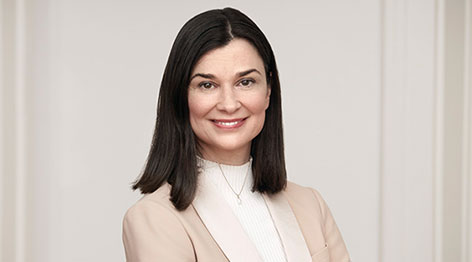
»Despite numerous setbacks, the pandemic has also opened up opportunities for innovation and development. Seizing these opportunities is a key priority for us.«



